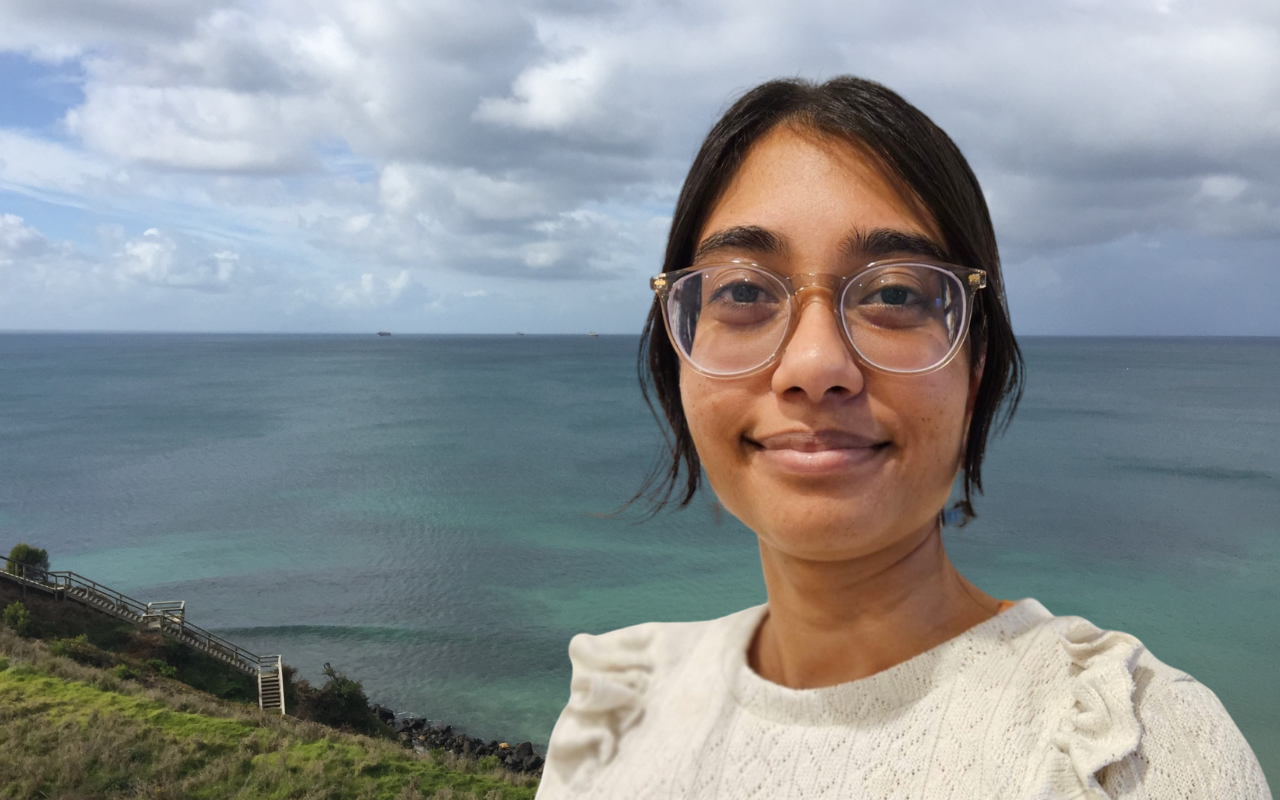Working as a rural doctor helped improved my clinical and leadership skills, and the patients were so appreciative of my care that they even invited me home for dinner, writes Dr Mogeshni Govender.
Looking out at the darkness outside the windows of the train back to Melbourne, I am reminded of the memories that I carry away with me from working rurally.
I am returning from working in rural Victoria as a medical registrar, having finished three years of Adult Medicine Basic Physician Training.
The last time I was in a rural area was when I was a medical student, six years ago.
At the time, I was doing a surgical rotation in Mount Gambier and a GP placement in Penola, South Australia.
And now I have even more memories to add to, from my time in rural Victoria.
A different hospital culture
As a medical student in Mount Gambier, it was amazing to witness the range of skills and versatility surgeons had, especially when operating with less resources.
The hospital culture was very different as well – I was invited to evening dinners with the surgical consultants and the rest of the team.
I felt welcomed, included, seen and valued.
At the day’s end, I would run around the local oval, which was secluded and pristine, giving me the space to listen to my own thoughts.
I competed in a Saturday marathon around the Blue Lake, taking in the spectacular views and fresh morning air.
It was nice to be among “down to earth” people, being part of a close-knit community, and enjoying the simplicities of country life.
Living with other medical students in a share house was memorable as we listened to each others’ stories about our journeys through medical school and of our dreams beyond.

The community spirit
In Penola, I learnt alongside the only GP running the small hospital and the adjoining nursing home and GP clinic.
He was able to do many procedures that city GP’s may not get the opportunity to learn or do.
The patients were thrilled to have a medical student from the city.
I got many invitations for dinner from patients, which I had to politely decline.
But the thought counted, and it meant something to me.
It was that feeling of community, of feeling appreciated, welcomed and valued.
My accommodation was a small unit, with basic facilities, but I did not need much more.
I appreciated the quietness at night, with no noise from traffic or blinding city lights.
I could see the stars clearly, and fell asleep to the sounds of the kookaburras.
I became brave as an individual, venturing out alone far from home, and building my inner strength to withstand the toughness of country life.
I realised not much was needed to be content in life, and that is something I have always held onto.
Life on the frontline
I wanted to explore working as a doctor rurally once I graduated from medical school.
From my time working in rural Victoria as a medical registrar, I realised that certain specialty services are under-represented, such as endocrinology, haematology and neurology.
I gained an appreciation of the easy access I had to specialty medical advice when working in the city, which in itself enhanced patient care and assisted with decreasing length of stay and mortality and morbidity rates.
Working rurally, I was often on the phone, for long waiting periods, to be connected to metropolitan hospitals for specialty medical advice.
What I had to convey clinically over the phone became significant to the specialist’s decision making since they could not see the patient in person and therefore relied on my history and physical examination to assist with providing advice.
It also meant that management plans given over the phone would not be of the same quality, as the patient could not be directly assessed by the specialist.
Pacemaker interrogations took me more than three hours to organise for each patient, going back and forth over the phone between many hospital departments.
One hospital only had three morgue beds, which were already filled, despite daily patient deaths.
In-depth investigations were not always achievable, given the scarcity of resources.
The waiting list for inpatient steroid joint injections was several months’ long, the results of morning blood tests often came back after hours, and certain blood tests were unavailable, for example antiphospholipid antibody tests for a woman with recurrent miscarriages that I was looking after.
I came to understand the differences in access and quality of health care compared to the city , and empathised with the shared frustration encountered by other rural doctors when working in under-resourced environments.
I accepted this as a challenge, and a lesson in patience and reflection.
Less continuity of care in regional areas
Many rural hospitals were run by mostly short-term locum doctors, which reduced continuity of care.
As a result, there was a greater risk of medical error.
Handover and documentation skills became very important.
If a doctor was sick, there was often no one to fill their position at the last minute.
The rural consultants greatly appreciated locum doctors coming to work in their hospital.
I was filling a much-needed position, but never felt like a number in the system.
I felt that the work I did somehow meant more here, as patients often had not been seen by a specialist for end stage conditions, they presented with more comorbid conditions and required a great deal more of assessment and investigation.
Making the big decisions
I recall looking after an elderly man whose right upper limb was infected.
They were in significant pain.
They also had end stage heart failure and were experiencing a loss of independency and reduced quality of life.
The patient held my hand, pleading I do my best for him, appreciative that I was the first person to suggest palliative care to them.
I felt privileged in being able to help him, but saddened to witness the difficulties in health care access in rural areas.
Community-based services were under pressure due to patient numbers and under-resourcing, including mental health services.
I recall managing a young person who had not been seen by an eating disorder service despite having the disorder for more than ten years. There were a lot of sad cases like these that I witnessed.
I was involved in managing the high dependency unit (HDU) for rural hospitals and being code blue-lead without intensive care assistance.
There were only about seven HDU beds, to service a population of a couple of thousand people.
I was the solo doctor in the HDU, which at times was isolating but my leadership and efficiency skills improved.
There was often less direct senior support, which strengthened decision-making skills and improved my confidence.
Once, I was called to attend a paediatric emergency call, and was filled with a sense of dread, given I had not practised paediatrics in six years.
Luckily, the paediatric registrar was present, but I was still required to be present.
Working in the country had its surprises!
Appreciating the collegiality
One of the best parts of working rurally was the collegiality among the medical and nursing teams.
I was not just another doctor, or locum, but I was seen and treated as a human being.
Nurses and doctor colleagues were interested to hear my background and what led me to working rurally.
Consultant physicians would ask me about where I was born, my interests, and my career goals, which was very refreshing. There was no hierarchy amongst seniors and juniors.
For the first time in many years, I was finding myself being able to take proper lunch breaks, and not only that, all the junior doctors on the unit would take part in daily shared lunch.
I felt like I was among family rather than colleagues.
There was no medical hierarchy, or “sizing up” of what level you were in training – everyone was on the same level.
For the first time, a consultant told me they would miss me when I left working at the hospital, which meant a lot.
It made me wish I could stay on for a few more weeks, indicating the value of good words to junior doctors.
The hospitals were multicultural, with many international medical graduates, as well as Australian trained doctors who moved to the country for work.
It reminded me of growing up in South Africa, where I went to school with children of many ethnicities.
It was great to be surrounded by doctors of many cultures, listening to their stories about life ‘back home’ and what drew them to Australia.
It was great to be separated, for a short period, from the race to “climb the ladder” to consultancy, competing for training positions, and working gruelling hours.
The doctors favoured quality of life
Also refreshing, was the fact that many of the doctors talked openly about the strains training programs had on wellbeing and family life.
It was never seen as a failure to leave well regarded city positions.
There was no judgement or shame experienced.
Most doctors favoured quality of life over any specific medical title.
Consultants came to escape the stressful environments of city hospitals and raise children away from the hustle of the city.
Working with locums
I also got to work alongside locum GP’s, an experience I would not have gotten a chance to have in the city, or as part of my training.
I learnt the gaps in physician training that GP training covered.
I was disappointed that I had lost most of my paediatric and obstetrics and gynaecology knowledge, which my colleagues were well skilled in.
One of my consultants was a surgical GP, having finished his trauma surgery training in South Africa and GP training in Australia.
He could do plastic surgery, endoscopies, bronchoscopies, and minor procedures from vasectomies to skin cancer excision.
I was amazed at the variety of skills rural GPs possessed.
I keep being drawn back
Returning back home to Melbourne, I am filled with gratitude for the experiences I have had as a rural doctor and a rural medical student, as I have grown both as a doctor and a person.
I feel truly privileged for being able to provide service in areas of great need.
I have become more knowledgeable about differences in health care access, healthcare outcomes, and the challenges of working as a rural doctor.
This is outweighed, though, by the numerous advantages: a work–life balance, more opportunity for leadership, interesting and rare clinical presentations, and a greater sense of impact on patients’ lives.
Plus, there is the experience of community and simplicity of life and being surrounded by nature.
These are the things that continue to draw me back to the country.
Dr Mogeshni Govender is doing locum rural work in Victoria, and now embarking on General Medicine Advanced Training at Peninsula Health (which services the metropolitan and rural areas on Victoria’s Mornington Peninsula)
The statements or opinions expressed in this article reflect the views of the authors and do not necessarily represent the official policy of the AMA, the MJA or InSight+ unless so stated.
Subscribe to the free InSight+ weekly newsletter here. It is available to all readers, not just registered medical practitioners.
If you would like to submit an article for consideration, send a Word version to mjainsight-editor@ampco.com.au.

 more_vert
more_vert